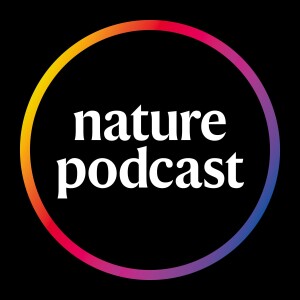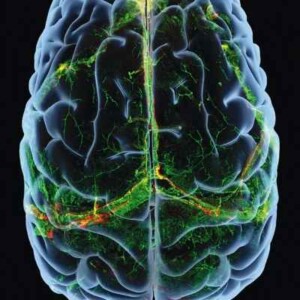An explanation for giant ice structures on Pluto, and dismantling the mestizo myth in Latin American genetics.
In this episode:
00:46 The frozen root of Pluto’s polygonal patterns
In 2015, NASA’s New Horizons probe sent back some intriguing images of Pluto. Huge polygonal patterns could be seen on the surface of a nitrogen-ice ice filled basin known as Sputnik Planitia. This week, a team put forward a new theory to explain these perplexing patterns.
Research article: Morison et al.
06:15 Research Highlights
How Pamplona’s bull-running defies the dynamics of crowd motion, and self-healing microbial bio-bricks.
Research Highlight: Running of the bulls tramples the laws of crowd dynamics
Research Highlight: It’s alive! Bio-bricks can signal to others of their kind
09:06 How the mixed-race ‘mestizo’ myth has fostered discrimination
The term 'mestizo' emerged during the colonial period in Latin America to describe a blend of ethnicities – especially between Indigenous peoples and the Spanish colonizers. But this label is a social construct not a well-defined scientific category. Now researchers are challenging the mestizo myth, which they say is harmful and has a troubling influence on science.
Feature: How the mixed-race mestizo myth warped science in Latin America
17:22 Briefing Chat
We discuss some highlights from the Nature Briefing. This time, how interrupted sleep could be a route to creativity, and the development of vaccines to target respiratory syncytial virus.
New Scientist: Interrupting sleep after a few minutes can boost creativity
Nature News: The race to make vaccines for a dangerous respiratory virus
Subscribe to Nature Briefing, an unmissable daily round-up of science news, opinion and analysis free in your inbox every weekday.
See acast.com/privacy for privacy and opt-out information.
More Episodes
Audio long read: The ‘breakthrough’ obesity drugs that have stunned researchers
 2023-01-30
2023-01-30
Amino acid slows nerve damage from diabetes, in mouse study
 2023-01-25
2023-01-25
Laser 'lightning rod' diverts strikes high in the Alps
 2023-01-18
2023-01-18
The science stories you missed over the past four weeks
 2023-01-11
2023-01-11
Science in 2023: what to expect this year
 2023-01-06
2023-01-06
The Nature Podcast’s highlights of 2022
 2022-12-28
2022-12-28
The Nature Podcast Festive Spectacular 2022
 2022-12-21
2022-12-21
COVID deaths: three times the official toll
 2022-12-14
2022-12-14
Oldest DNA reveals two-million-year-old ecosystem
 2022-12-07
2022-12-07
Gaia Vince on how climate change will shape where people live
 2022-12-02
2022-12-02
Mysterious fluid from ant pupae helps feed colony
 2022-11-30
2022-11-30
Audio long read: Science and the World Cup — how big data is transforming football
 2022-11-25
2022-11-25
The satellite-free alternative to GPS
 2022-11-23
2022-11-23
How a key Alzheimer's gene wreaks havoc in the brain
 2022-11-16
2022-11-16
Audio long read: She was convicted of killing her four children. Could a gene mutation set her free?
 2022-11-14
2022-11-14
Molecular cages sift 'heavy' water from near-identical H2O
 2022-11-09
2022-11-09
Audio long read: The controversial embryo tests that promise a better baby
 2022-11-04
2022-11-04
Flies can move their rigid, omnidirectional eyes – a little
 2022-11-02
2022-11-02
Racism in Health: the harms of biased medicine
 2022-10-28
2022-10-28
Ancient DNA reveals family of Neanderthals living in Siberian cave
 2022-10-26
2022-10-26
Create your
podcast in
minutes
- Full-featured podcast site
- Unlimited storage and bandwidth
- Comprehensive podcast stats
- Distribute to Apple Podcasts, Spotify, and more
- Make money with your podcast
It is Free
- Privacy Policy
- Cookie Policy
- Terms of Use
- Consent Preferences
- Copyright © 2015-2024 Podbean.com




 iOS
iOS Android
Android


